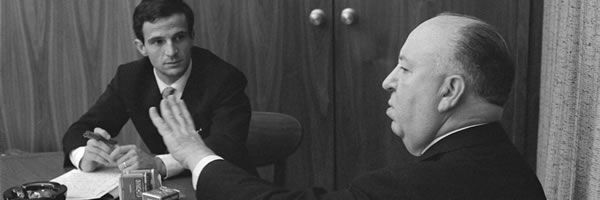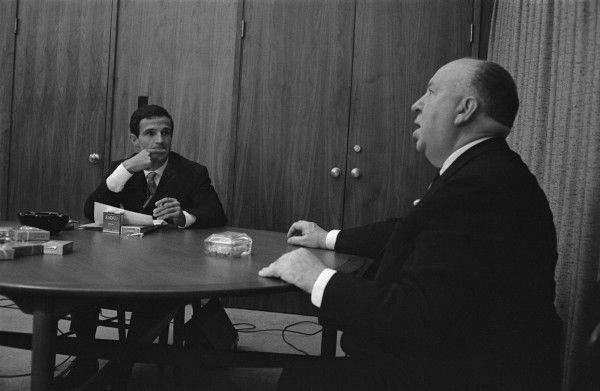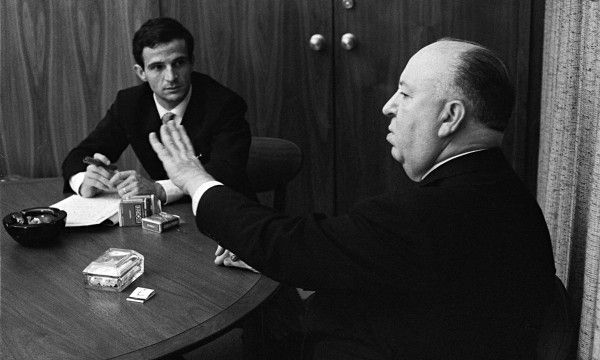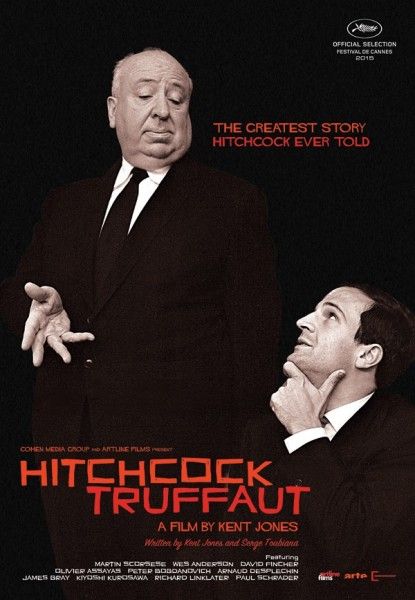Alfred Hitchcock is arguably the greatest and most influential director who ever lived, and director François Truffaut made that argument about as convincingly as possible in his seminal 1966 book Hitchcock/Truffaut, which collected a week of interviews between the two men in 1962. Director Kent Jones’ documentary of the same name provides an excellent adaptation and adds to the conversation by incorporating today’s master filmmakers and providing a top-notch breakdown of Hitchcock’s work to clearly explain why the “Master of Suspense” was not only a true master, but a unique presence in cinema history.
Jones begins by providing a history of the book itself, its importance to cinema studies, and why it was an important project for both Hitchcock and Truffaut. From there, while the movie doesn’t entirely ignore Truffaut and his movies, Hitchcock/Truffaut, like the book, is more about exploring the work of the former rather than delving into the filmography of the latter. Using clips and interviews with auteurs like Martin Scorsese, David Fincher, Wes Anderson, Olivier Assayas, and more, the documentary entrancingly explains what made Hitchcock a singular director. We get a look at how he handled time expansion and distillation, his fetishes, his process with actors, and more. The movie also digs (as much as an 80-minute film can dig) primarily into The Wrong Man, Vertigo, and Psycho, using each film to illustrate not only Hitchcock’s technique, but also where those films fall into film history.
In some ways, Hitchcock/Truffaut is unnecessary. No one is arguing that Hitchcock isn’t a master filmmakers and one of the giants of cinema, and that’s largely in part because of Truffaut’s book. But the documentary is not only an excellent reminder, but also an evolution of the book. While it’s an essential addition to every cinephile’s shelf, it’s ultimately just a transcribed interview with lots of pictures, and that’s great to a point. But the best way to teach cinema is with cinema, and that’s where Jones’ movie has the edge.
The book can talk about the moment of Judy’s emergence in Vertigo, and a bunch of side-by-side photos would get the general idea across. But there’s no substitute for watching that moment play out, and then having expert directors break down why that moment and the film as a whole is absolutely genius. If there was enough time, money, and inclination, Jones probably could have done an entire film where he just explores Vertigo. His documentary touches on how critics panned the film at the time of release, and how Vertigo had to be rediscovered and reappraised in the 1970s to be celebrated for the masterpiece it truly is, and that’s just a sliver of the story.
So credit to Jones for making Hitchcock/Truffaut feel packed but rarely rushed. It’s a deliberately paced film that has so much room to go deeper to the point where I wish this were the birth of a series where great directors provided master classes on legendary films. But as an evaluation of Hitchcock in particular, Jones has expertly carried on the work that Truffaut began in 1962. He can’t interview either man, but art at its best is an ongoing conversation, and this documentary intelligently carries on that conversation by bringing in the best minds to talk about their passion and a director whose work inspires them. We want more because what we’re briefly given is so damn good.
And yet I was also restless during Hitchcock/Truffaut. I wanted to head home and watch every single one of Hitchcock’s films, which is saying something since I saw Hitchcock/Truffaut at the Toronto International Film Festival and I live in Atlanta. Like Truffaut, Jones was clearly motivated by a love of Hitchcock’s work and a desire to better understand the director’s technique and personality. His documentary won’t supplant Truffaut’s interviews, nor should it. It now stands alongside the book as a fundamental guide to understanding and embracing the masterful work of a master filmmaker.
Rating: A




